
£4.57
March: Pulitzer Prize Winning Novel Price comparison



- All prices mentioned above are in United States dollar.
- This product is available at Whsmith.co.uk, OnBuy.com.
- At tgjonesonline.co.uk you can purchase Little, Brown Book Group The Mighty Red : The Powerful Novel From The Beloved Pulitzer Prize-Winning Author for only $12.11
- The lowest price of Little, Brown Book Group The Mighty Red : The Powerful Novel From The Beloved Pulitzer Prize-Winning Author was obtained on November 11, 2025 09:32.
March: Pulitzer Prize Winning Novel Price History
March: Pulitzer Prize Winning Novel Description
Discover the Depths of “March”: Pulitzer Prize Winning Novel
“March,” published by Penguin Books on January 31, 2006, stands out as a compelling Pulitzer Prize-winning novel that intertwines historical events with rich character developments. This engaging story elevates the classic tale of “Little Women” by exploring the life of the March family patriarch, Mr. March, during the tumultuous Civil War era. If you’re looking to delve into the multifaceted world of this novel, you will find everything from essential features to comprehensive reviews and price comparisons right here.
Main Features of “March”
- Engaging Storyline: The narrative unfolds with a focus on themes of family, sacrifice, and social justice, offering readers a profound connection to historical context.
- Rich Character Development: The portrayal of Mr. March, his interactions with his family, and his moral dilemmas make for an intellectually stimulating read.
- Pulitzer Prize Winner: Recognized for its literary excellence, “March” has received acclaim for its intricate exploration of its characters’ emotional and moral conflicts.
- Publisher: Published by Penguin Books, the novel comes in a paperback format featuring 320 pages, ISBN-10: 0143036661, and ISBN-13: 978-0143036661.
- Perfect for Adults: Aimed at readers aged 18 and up, this novel appeals to those interested in literary fiction and historical narratives.
Price Comparison for “March”
When considering a purchase for “March,” price variations across major suppliers can significantly impact your decision. Our comparisons show that various retailers offer competitive pricing. You can find this novel priced as low as $12.99 at select online stores, while other suppliers may list it for up to $20.99. Checking prices regularly is wise as discounts often fluctuate, especially during seasonal sales. Utilize our comparison tool to see the latest price updates on this celebrated work.
Analyzing the 6-Month Price History
The past six months reveal an intriguing trend in the pricing of “March.” Initially listed at approximately $18.00, the price has fluctuated throughout the semester, peaking near the holiday season. As noted in our price history chart, prices typically stabilize post-holidays. This price trend indicates that waiting for specific times might yield better deals, making it an excellent opportunity for budget-conscious readers.
Summarizing Customer Reviews of “March”
Customer reviews highlight both the strengths and weaknesses of “March.” Many readers express appreciation for the novel’s deep emotional and historical insights, praising its gripping narrative and character arcs. Reviewers have noted that the intricate prose often captivates their imagination, leading to a rich reading experience. However, some have mentioned that at times, the pacing can feel slow. The initial chapters require patience before the action intensifies. Overall, the majority of readers affirm enriching their understanding of the civil war and the March family dynamics.
Explore Unboxing and Review Videos
If you’re eager to learn more about “March,” there are several compelling YouTube unboxing and review videos available. These provide additional insights into the book’s themes and characters, enriching your overall understanding before making your purchase. Many video reviewers highlight their favorite passages and share personal reflections that can help you decide if this Pulitzer Prize-winning novel resonates with your interests.
Your Next Step for “March”
Experience the exquisite storytelling found in “March,” a Pulitzer Prize-winning novel that promises to be both entertaining and thought-provoking. With its compelling narrative, relatable characters, and historical relevance, “March” stands as a must-read for any literary enthusiast.
Dive into the world of this novel today! Compare prices now to ensure you secure the best deal.
March: Pulitzer Prize Winning Novel Specification
Specification: March: Pulitzer Prize Winning Novel
|
March: Pulitzer Prize Winning Novel Reviews (9)
9 reviews for March: Pulitzer Prize Winning Novel
Only logged in customers who have purchased this product may leave a review.

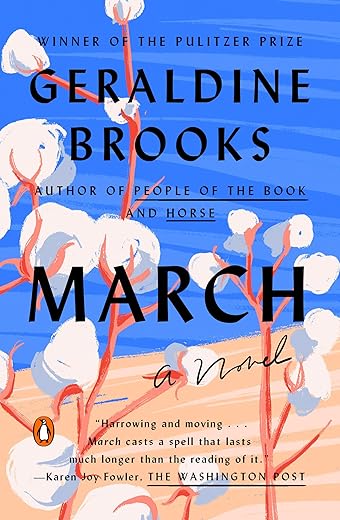
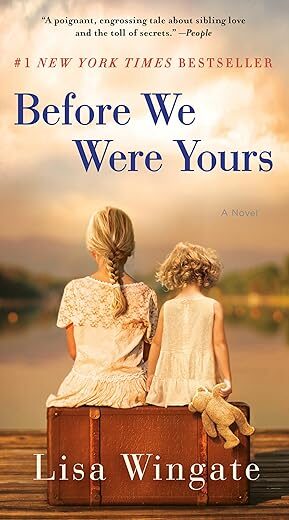
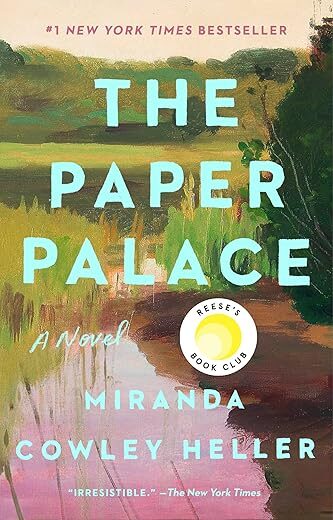
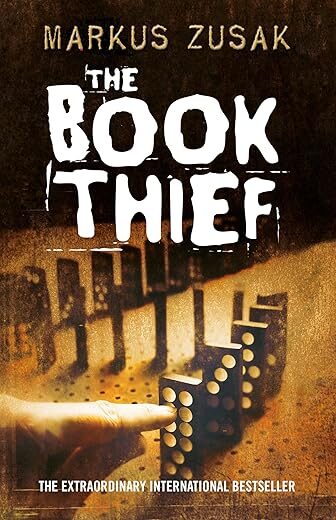
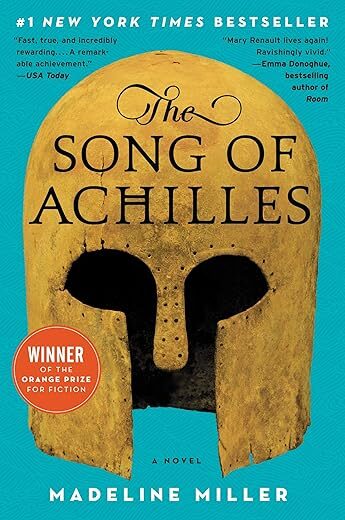


Cliente Amazon –
Like the other book (Horse) I read by this former journalist/war correspondent author, in this narrative a historical event/period is experienced in a new and profound way through the personal experiences of a few of its heroic but hitherto unknown protagonists. Here the dramatic event is the American Civil War, portrayed with unspeakable cruelty and pervasive prejudice on both sides. Since it is written in the first person, both the style and the dialgue reported seem to be in keeping with the historical context and the cultural and social background of the characters. Quite a tour de force for the author, who by her own admission has immersed herself in personal letters and journals of the times. Aesthetically beautiful prose and gripping storytelling make it an instructive and satisfying read.
Alan Edwards –
Rec
Katherine Y –
Geraldine Brook’s novel fills in a side of the story that is absent from Louisa May Alcott’s Little Women. These are the experiences of Mr. March, the father of Meg, Jo, Amy, and Beth, and Marmee’s husband, who was a peddler before the Civil War and a chaplain for the Union Army during the war.
As a young man, before he met Marmee, March was a traveling salesman who spent time in the South. Because he was a book lover, he caught the attention of a plantation owner who shared the same interests and loved to discuss literature. He was invited to stay for a while in the man’s house. He became acquainted with the household members, including the enslaved people. One such girl was Grace, for whom he held a strong admiration. He met the children of the house workers and wanted to improve their lives by teaching them to read. In his idealism, he never saw how he set himself up against his benefactor. His actions forever altered the course of his life and brought suffering to Grace.
Years later, after March married Marmee and became a chaplain, he was determined to help in a cause he firmly believed in. He and Marmee had provided a resting place on the Underground Railroad, but he wanted to do more. He left Marmee and his family to work in the Union Army, comforting the soldiers and the injured. He found himself stationed in Southern houses taken over by the Union. One day, he was sent to the very same Southern plantation where he had angered the owner years ago. He found Grace altered only in her circumstances, not in her inherent dignity and courage.
I found this novel profoundly moving, with vivid depictions of the precarious lives of enslaved peoples and the injustices they suffered. The story is haunting and will linger with the reader long after finishing the book. The novel is a must-read for history lovers and historical fiction fans.
Karen Ladanye –
The premise of this book is a great counterpoint to Little Women. While the girls had their own challenges growing up, this book imagines the horrors their father went through in the Civil War, eventually leading to what we would now call PTSD. The larger issues of the cruelty of war and slavery are explored well in this book to the point that readers will share some of Mr. March’s emotions. Overall, an excellent book and deserving of its Pulitzer Prize.
Tallie –
At first glance, I excpected to see the heroic Chaplain March, away from his precious “Little Women” and the steadfast wife, serving the Union for whatever made some men who would not have been called upon to enlist anyway. What I read here was an incredibly researched, intense story that felt so real it seemed more believable that LMA’s original setting. The story is layered, filtered through the unbelievably distorted ego and deceit of a man who at every turn seems not genuinely spiritual – after all, no church will have him and he alienates everyone he intends to minister to – but rather a cowardly weasel, seeking the path of least resistance, a man who hides in a corncrib while children are murdered, who lets his friend drown, who snivels and minces about his righteousness and his “special” dispensentation from God Almighty to be human, to sin, (read adultery) to feel bad about it, but by golly to lie like a rug to the wife and kiddies so as not to hurt them. He’s a snake dipped in lard, slick and smarmy. Here’s the dilemma for me – Geraldine Brooks’ writing is fantastic. Her story is woven well into real history, real times, real people, so that it feels no less real. The trouble for me was that I wanted to like the guy. I want to feel sympathy, empathy, and attachment for the main character. What I felt was that her writing was so brilliant it uncovered yes, the uncomfortable deficits of character that people may succumb to, even people who feel like they are good people. So, it is realistic. It is sad. Sad to me as a novel reader and writer, was that in the end I was left thinking he was slime at worst, at best, an over-educated, under-thinking fool without a backbone who threw his vast fortune away on a whim. He spent it subsidizing the infamous John Brown’s slave insurrection ploy. It was a cause that garnered financial backing from many places, but the slap-dash throwing out the baby with the bathwater approach of Peter March divesting his entire life’s fortune (with a wife and four children to support) to a man thought to be a lunatic by many, made March and Marmee seem like dolts. Marmee is painted as a harridan frighteningly loosed from a scold’s bridle, whom a young March, after a tryst under a tree, marries, then dedicates his life to helping her learn to curb her violent public outbursts. It was also somewhat odd to me that the children called her “Marmee” which I thought was somehow an accent or a linguistic turn similar to Cornish “Mar” and “Par” pronunciation of Ma and Pa. So if Marmee is a knickname, why do the girls not call her “Mother?” Was Brooks fair to the LMA characters? Yes. Nothing in the early novel makes “March” an impossibility, except that their generosity and poverty seemed to come from courage and strength, rather than grinding oblivion to self-preservation and an almost perverse adherence to a “cause” which is not clear. So, after that you are asking, why give it five stars? Why not just chuck it out and say something lame like “it didn’t work for me”? Because what is done brilliantly here are the writing, the story-telling itself, the slick pacing and thorough research that never feels forced. This is a book to be read and discussed, one that does not leave you after the last page is turned.
Les West –
Geraldine Brooks always writes wonderful prose and researches her subjects so thoroughly that the characters and situations she depicts seem astonishingly real.
March, like all her works, is superbly crafted.
Having said that, the reader should be aware that this book portrays scenes from a brutal war without tempering the horror in any way. If you want to fully appreciate this book you need to be prepared to witness many disturbing incidents.
It’s very much worthwhile reading the afterwords to this book, to fully grasp its origins and structure.
Very highly recommended.
Paracelsus –
Probably no adult who grew up in an English-speaking family is not familiar with Louisa May Alcott’s “Little Women”. Brooks has had the ingenious idea of telling the fate of Father March, who is present in Alcott’s book only in his absence. Brooks spins a fascinating story of his experiences during the American Civil War that is hard to put down. I ordered this book after reading and enjoying Brooks’s “Year of Wonders”, and was not disappointed.
fmdhk –
I found March to be very well crafted, weaving the protagonist’s past and present seamlessly to move the plot forward, and a very compelling page-turner. The episode of rebels raiding the farm and kidnapping slaves with tragic results is heart-racing. The last part of the book, told from the wife’s perspective, rounds out the psychologies at play and adds satisfying layers to the story. It is beautifully descriptive without being florid and reveals certain Civil War aspects I didn’t know about before.
However, even though both in the Little Women novel and in the real Alcott family there were very progressive and radical views for the time, March just seemed far too modernistically “woke” to be truly believable. There is a lot of contrivance and overall a certain soapiness to the story. The all-wise slave woman Grace is portrayed as a near saint, and overly prescient and high-minded for the situation. Mr. March is noble, but his degree of naivete was unbelievable to me. The character of Marmee was downright unlikeable – an overwrought, childish martyr – how could she possibly have elicited such love and devotion from Mr. March? (She’s a total reinvention of the beloved Little Women character.)
I recommend March as an interesting, enjoyable and engaging read; it does effectively explore life-changing challenges to morality and beliefs as well as the complex interplay in a marriage. But I don’t find the depth or layers to the story that other readers have. And – a Pulitzer prize winner? I don’t think so.
C. Beans –
I expected more, and probably would have liked it better had it not tried to be connected to Little Women. The moments, phrases directly lifted from that novel felt jarring in this one, taking me a bit out of the story.
I did however find it easy to read and interesting to learn about aspects of the Civil War that were completely unfamiliar to me.